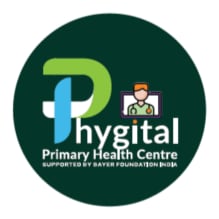Telemedicine: Bridging Healthcare Gaps in Rural India

Access to quality healthcare continues to be one of the biggest challenges in rural India. Many communities travel long distances in search of medical help, only to face inadequate infrastructure, a shortage of doctors, and limited awareness around preventive health, hygiene, and nutrition. With the growing burden of non-communicable diseases (NCDs), these barriers further restrict timely and effective care for millions of people.
To address these challenges, Bayer has introduced ‘Phygital’ Telemedicine Centres — an innovative model that combines physical presence with digital technology to make healthcare affordable, accessible, and reliable. Set up within government Primary Health Centres (PHCs), each facility is equipped with video consultation systems, diagnostic tools, and trained nursing staff. Patients can connect with general physicians and specialists remotely, ensuring timely diagnosis, treatment, and follow-up without leaving their communities.

Currently, 12 Telemedicine Centres are operational across Maharashtra, Uttar Pradesh, and Karnataka, offering consultations across 15 medical specialties. Each centre is managed by a qualified General Nursing & Midwifery (GNM) or Auxiliary Nursing & Midwifery (ANM) nurse, who oversees daily operations, patient registration, vitals monitoring, and facilitates consultations. Physicians and specialists provide remote diagnosis and treatment, ensuring continuity of care.
From recording vital parameters and conducting lab tests to issuing prescriptions and providing medicines through PHC pharmacies, the centres deliver comprehensive healthcare at the community’s doorstep. By leveraging technology, the program enables early detection and management of diseases — especially NCDs — while reducing the need for expensive and time-consuming hospital visits.
Beyond consultations, the initiative also emphasizes on preventive healthcare and awareness. Monthly health camps, supported by ASHA workers, address topics such as nutrition, hygiene, women’s health, and disease prevention. Advanced point-of-care devices — including otoscopes, spirometers, fundus cameras, refractometers, and breast health screening tools — expand diagnostic capabilities.
Aligned with government initiatives like e-Sanjeevani, the program is designed for long-term, sustainable impact. By prioritizing women, children, and underserved communities, it strengthens rural health systems, improves community health indices, and fosters positive behavioral change toward preventive care.
At Bayer, we believe that technology-driven innovation can transform the way healthcare is delivered. Our Telemedicine Centres act as a channel, connecting rural communities to qualified medical expertise and moving us closer to our vision of “Health for All, Hunger for None.”





